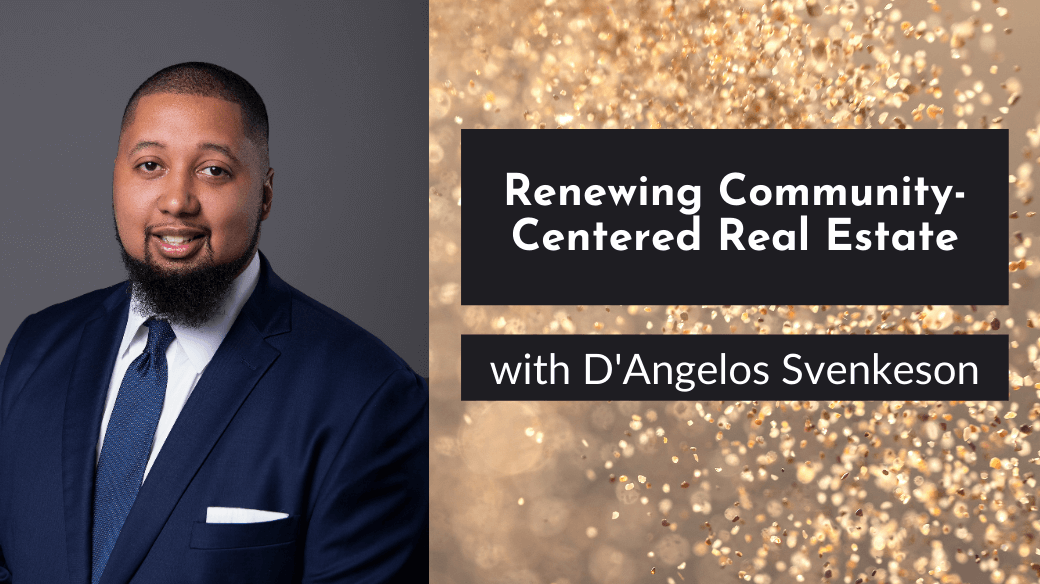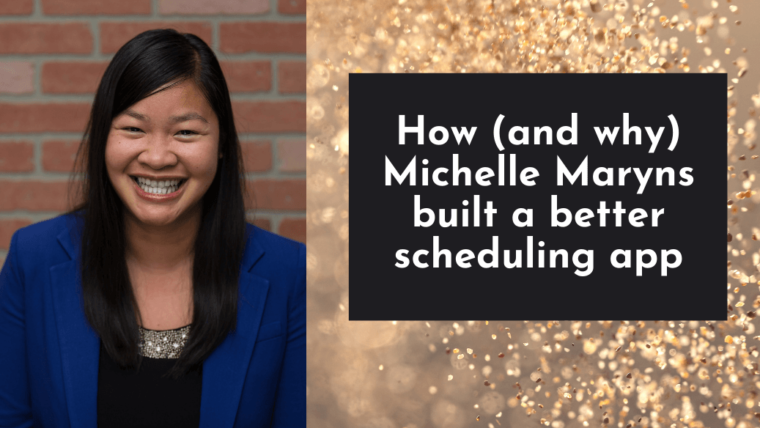D’Angelos Svenkeson has always known that he would be a business owner someday – even when he was a child playing SimCity and falling in love with real estate.
In 2019, D’Angelos launched NEOO Partners, a creative real estate and community engagement consulting firm that combined everything he’d learned from jobs in nonprofit, government, and corporate real estate spaces. But just one year after his business opened, D’Angelos had to reimagine everything.
We caught up with D’Angelos to discuss the inspiration behind his business, how he navigated his business through COVID-19, and his vision for the future of community-driven real estate.
What inspired you to start NEOO?
After working in non-profit, corporate, and government, I realized the real estate system is built to reinforce and support larger organizations. It’s not built to support neighborhood and small business organizations. I thought, what if we built an organization for smaller and neighborhood businesses, and scaled it by creating automated systems to provide high-level resources and competency? We’d also be a member of that community, and a neighbor. I felt like this was a good time to have a conversation in December 2018. I launched NEOO Partners by focusing on small and collective community impact – planting seeds at the local level.
That could mean a local barber who’s looking for a new location, or a local non-profit who received a grant and now needs to provide a new level of community engagement, or an art center that received a grant to remodel and they need someone to help.
Typically, that real estate expertise is kept only for those with larger balance sheets. No one’s caring about the community, or how to alleviate the burden for community members.
NEOO is short for the Greek word “Ananeoo,” which means to renew the mind. We want to change how our community does business, so we can change how other businesses do business with our community.
Did you always know you were going to be an entrepreneur?
The idea of starting my own business has been in my head since I was 11. I always knew that ownership was in the future for me, but I didn’t know if it was going to be my business or someone else’s business.
I started learning about real estate by playing SimCity as a kid! And then I realized, I could make a living doing real estate.
When I started working in the field, I realized that implementation and execution is a sweet spot where you can really succeed. That’s what I wanted to do if I went into business for myself. But first, I wanted to be exposed to working with the government, non-profit organizations, and companies that had $300M in revenue. That’s where I sharpened my skills.
What financial tools did you use to launch your business?
Well, I had a credit card! I intentionally focused on the service side of the real estate business vs the ownership side, because I didn’t have capital. I used what I did have on filings and registration, and took an advanced draw on my credit card to get the bank account and insurance set up. I think it cost about three grand on my personal credit card to get everything set up like the website and the business cards. That was it. I ran through my savings to keep the lights on at home, including some unemployment money while the business got off the ground.
A year after your company was founded, COVID hit. How did you react and pivot?
Number one, we prayed every day, earnestly. Number two, we didn’t give up on what we were doing. We still valued our business proposition. During our first year of business, we did pretty well as a first year business. The next year, 2020, we were on pace to triple that number.
A lot of our work is sensitive to certainty. Businesses need to have certainty in order to spend it on capital and expenditure. So when COVID hit, that certainty went away. Food and beverage companies went away. Groups that were looking at buying property went away. We had to reconsider what’s going on. We stayed in touch with our stakeholders and stayed in touch with previous clients.
One larger client really helped us keep the lights on for the better part of a month. The Center for Economic Inclusion and Tawanna Black’s leadership ensured we were able to stay at the table as a subcontractor on a significant project. Because of her leadership, we kept our vision alive.
Through all that fighting, staying relevant, and thinking about the world differently post-pandemic, we kind of moved to the front of the line. We didn’t get too frantic. We were able to get a couple small clients into the fall, which led us into other conversations, which led to larger contracts, which helped make up for the income we lost in the spring of 2020.
In May, George Floyd was murdered and a nationwide protest was sparked in the Twin Cities, where NEOO is based. Property destruction was often the headline of that story. How is NEOO reacting as a people-centered, empathetic, and data-informed company?
We paused besides that one contract I mentioned earlier. We stopped sending generic correspondence.
We realized that in order to really plant seeds of transformation, we have to build beyond a service firm. We have to get to the other side of our business, which requires us to raise capital, build out more team members, and develop more project leads.
Being based in the Twin Cities, we saw the good and the bad at the same time. There was close to a billion dollars in property damage. We have to be a part of that solution. We have to move beyond the status quo for people of color in the Twin Cities.
What advice would you share with other business owners?
If you’re just starting out, I would want to know if this is a business or skill set that you can demonstrate with just your brainpower and a powerpoint. Because access to capital is always going to be a challenge.
My colleague Mondo Davison always says, “Are you a painkiller, or are you a vitamin?” If you’re a painkiller, the customer needs you. If you’re a vitamin, then it’s just nice to have you. If you’re not a painkiller as a service industry starting off– then you’re just a novelty.
I also think there’s a prioritization conversation that entrepreneurs don’t always have in a direct way. We always talk about what the business needs to be successful, but we don’t talk about what we need to be successful in different parts of our lives by prioritizing family, faith, and mental health.
When you become an entrepreneur, you make it your everything. Other parts of your life can start to feel that impact. Entrepreneurship can start as a passion and turn into an obsession. Having those hard boundaries going into it are very important.



